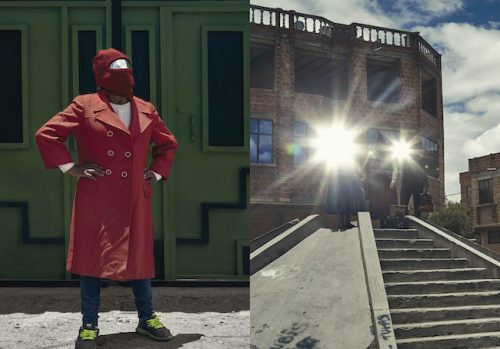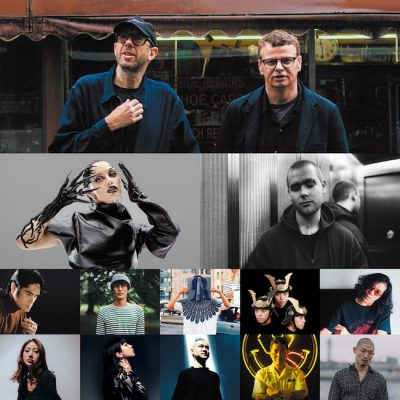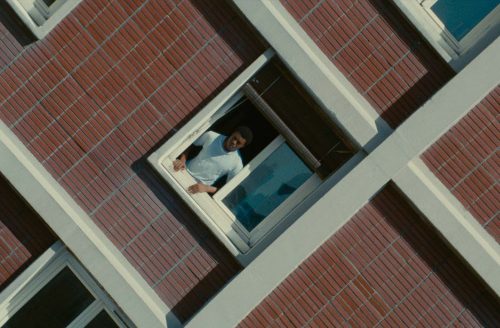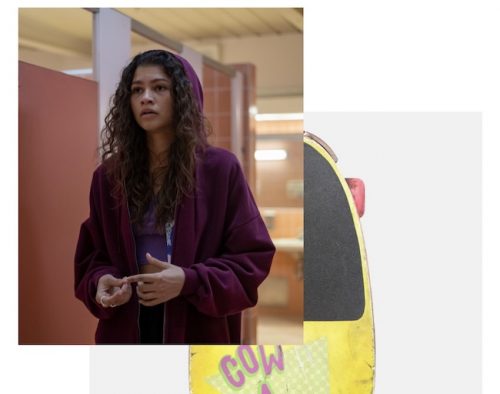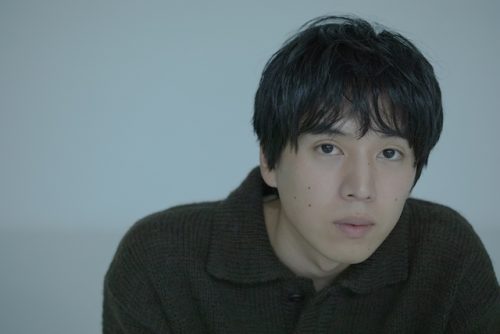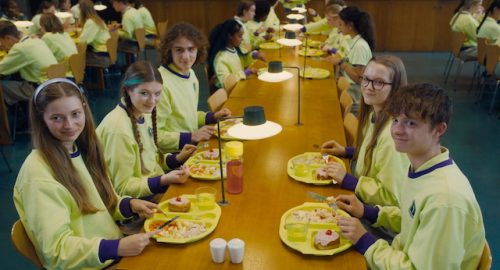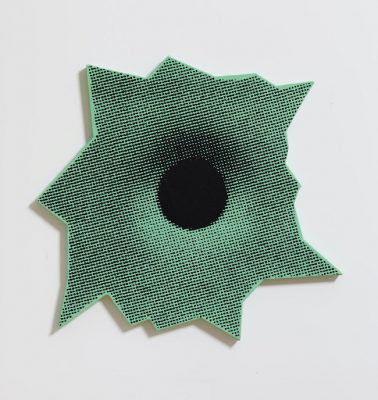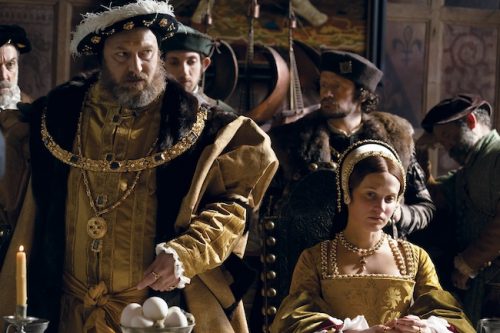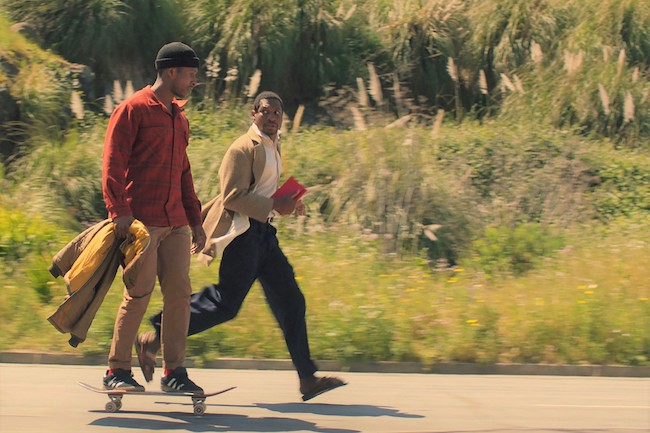
——It was such a beautiful and poetic film and I felt so much of your love for San Francisco. I loved every second of it. I read that the film is based on Jimmie’s personal experience. Why did you decide to tell this story on screen?
Jimmie Fails [Jimmie]: Thanks. It really was for the city more than wanting to tell my own life story. Some people may feel different, but now a lot of people want to just tell their life stories to the world, you know what I mean? [laughs] So it was more for the city into this and how that house felt. Over time, I guess it got to be more of wanting to show certain things in my life that felt like people could relate to, but it started out for the city.
——I heard that you guys have been friends for a long time. When did this project first start?
Joe Talbot [Director]: We started working on it, kind of unofficially, maybe over ten years ago now? We were talking about his life and eventually from those stories that started with his life, we created a narrative. We made movies together as kids, like short films, but we never made a feature film so we were learning a lot as we went. But we were lucky because as Jimmie and I started dreaming it up, eventually we met all these people that became our film family. They are people who just heard about the movie and heard about Jimmie’s story and they wanted to be a part of it, and they wanted to help support. They wanted to plug in in the ways that made sense. So we wouldn’t be here without those people.
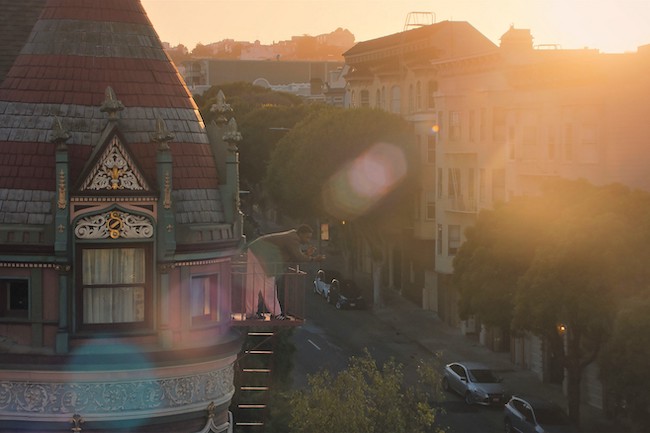

——The film felt like a beautiful love letter to the city. What about San Francisco did you want to convey the most through this film?
Jimmie Fails: I think just more of the real side of San Francisco that we grew up in that’s not the San Francisco they have on the postcards. Not just like the tourist attractions, but the actual inner city and all the beautiful characters that make up San Francisco what it is.
Joe Talbot: We are angry about what’s happening in the city and how it’s changing, because of how much we love it and how special those things feel for us that make San Francisco. You want to fight to preserve those things. Because we know how important they are and even on a personal level, how important they were when we grew up. They all become part of you in a way, all these strange characters in me. And people you hang out with in the park, people that you sit on the stoop with, people you meet skateboarding… It takes a lot of pride being strange and different and embracing all different kinds of people. So when you feel that’s been threatened,
now for us, I think a part of the movie came from wanting to celebrate those kinds of rare individuals. And I think Jimmie, both in the movie and in real life, is that way. That’s part of why I imagine we are connecting with him because he feels like a San Franciscan. Also, people like Jimmie’s aunt in the movie, the naked guy at the bus stop and the character of Montgomery. So we wanted to capture that before we fear it would be lost.
——The relationship between Jimmie and Mont seemed so genuine in the film. Is it based on your relationship in any way?
Jimmie Fails: They are both characters but me and Jonathan [Majors who played Mont] are really close. We got to know each other pretty well. So I think that’s what added to the characters. It wasn’t really like acting, we actually cared about each other, you know? He’s just a great guy and we just hit it off. We still talk today. I think that was able to show in the film.
——I thought maybe it was based on you and Joe’s relationship?
Jimmie Fails: Oh! Not really [laughs.]
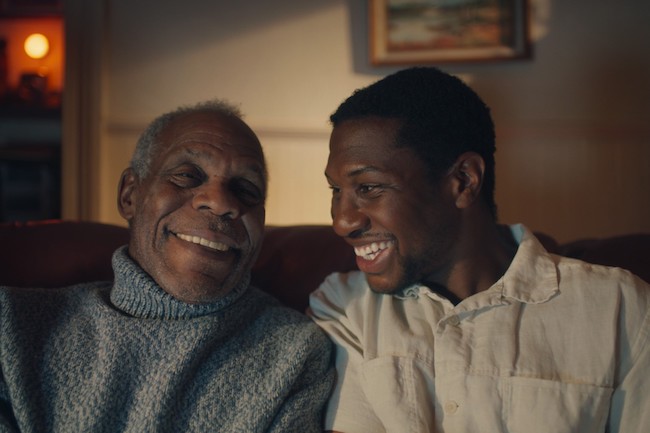
LBM_ScreenPull_59
Danny Glover stars as Grandpa Allen and Jonathan Majors as Montgomery Allen in THE LAST BLACK MAN IN SAN FRANCISCO, an A24 release.
Credit: Courtesy of A24
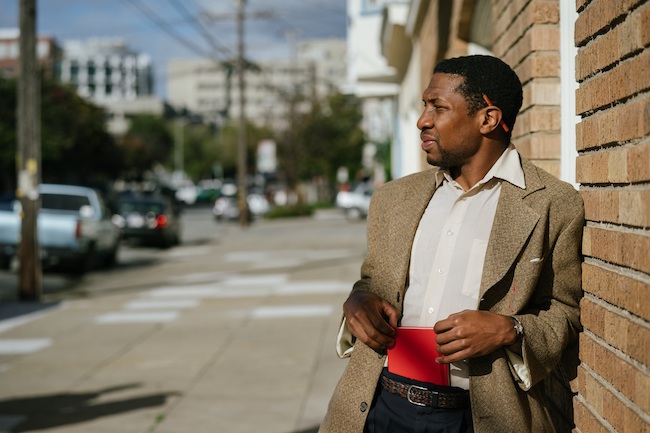
LBMISF_01726
Jonathan Majors stars as Montgomery Allen in THE LAST BLACK MAN IN SAN FRANCISCO, an A24 release.
Credit: Peter Prato / A24
——This film is pretty DIY as it was born as a Kickstarter project. How did you get Danny Glover on board? He was amazing in the film as Mont’s grandpa.
Jimmie Fails: Danny Glover, we were trying to reach him for a while. I’m not sure how he got my phone number, but he just called me on a random day [laughs.]
——Wow.
Jimmie Fails: Yeah, he was just asking me about the movie and started telling me about how the Fillmore was when he was growing up, that’s the neighborhood that the house is in. He told me about all the live acts he saw there, all the music, the culture that was so vibrant there. I think from that conversation, he just got to see how much me and Joe love the city and how much we wanted to make this happen. And I think he wanted to be a part of it because he’s such an icon, and we were just lucky. Danny is great, he’s the coolest guy.
——Does he still live in San Francisco?
Jimmie Fails: I think he still lives here, in Haight-Ashbury I think, right?
Joe Talbot: Yeah. He’s always been living in San Francisco. That’s why Danny is amazing because he’s lived there his whole life even when he became this big star. And Danny is also a really brave and heroic activist for all the work he’s done in San Francisco beyond just his art. In that way, we are really San Franciscans. We all look up to Danny Glover because he is both a great artist and great political activist. I feel like those two things together really feel like the heart and soul of the city.
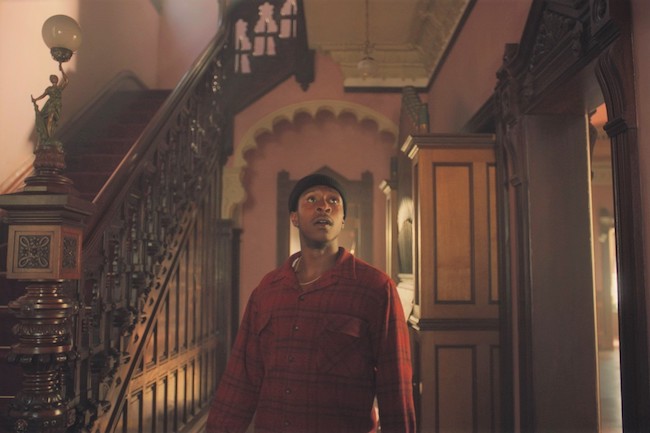
LBM_ScreenPull_16
Jimmie Fails stars as Jimmie Fails in THE LAST BLACK MAN IN SAN FRANCISCO, an A24 release.
Credit: Courtesy of A24
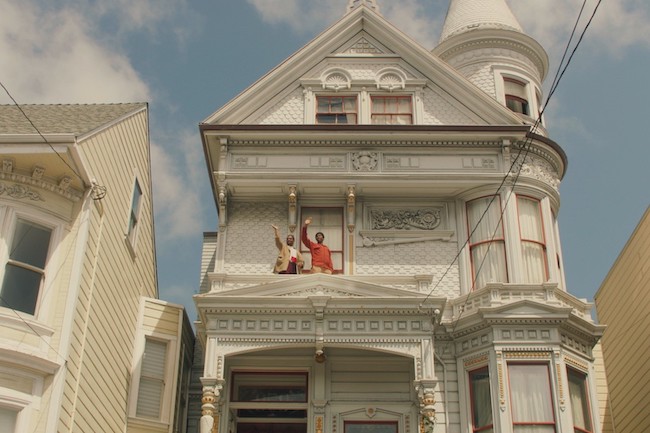
——Gentrification is happening here in Tokyo as well. My parents talk about how it changed so much over time and the city is even different from how it was when we were kids. This movie is about San Francisco, but I felt that it touches wider audience.
Jimmie Fails: I feel honored that it’s reaching all these different parts of the world. For us, we never thought it would get passed San Francisco. If we were to get the movie made, we thought we show it to all of our friends and everybody would be like, “Oh, hey, great guys! You guys made a movie!” We never thought it would reach as far as it did, so that’s an honor. I hope they just feel all the love for our city that was in the movie. Maybe they can relate to the love that they have for their own city.
Joe Talbot: What you were saying about gentrification, I remember watching “Drunken Angel” by Akira Kurosawa. I think it’s a late 40’s film and [Toshiro] Mifune was in it as a gangster. It was all set in Tokyo, but it’s like a very different Tokyo from what we see now. It feels like a small, in some ways like not as developed city. It’s strange that as you said that the movie is so personal for us and so much about San Francisco, but you hope it will resonate with people outside the city. I think it’s still amazing to us to imagine that it resonates with people in somewhere like Japan, yet at the same time, it makes sense because like you were saying, gentrification is not just in San Francisco, but it’s happening everywhere. It’s happening there, happening in Europe. So it’s an unfortunate way we all connect with each other.
——What’s next for you?
Joe Talbot: We are always creating things. I’m working on another feature right now in San Francisco. I’m also working on a TV show that I’m really excited about. It’s going to be set in a castle in Europe in 1840’s. We made a lot of life long collaborators making “the Last Black Man in San Francisco,” and one of them is my composer Emile [Mosseri.] Emile is already writing music for my next movie and we haven’t finished the script yet. Because I like to write the script with music if I can. So that’s been really fun to get to create a whole new process with him.
——Thank you so much. I hope to see you in Tokyo next time.
Jimmie Fails: Thank you, thank you.
Joe Talbot: I wish I could be there with you guys. It’s wonderful the film is going there, but it’s also heartbreaking because I really wish I could be there.
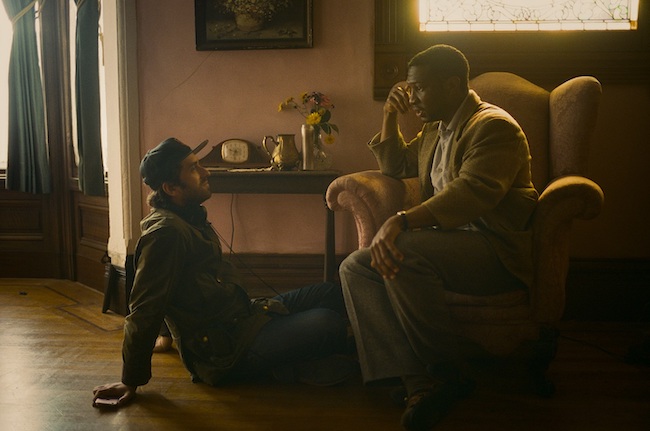
text Nao Machida





